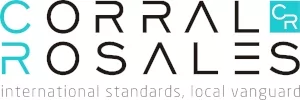Our partner specialized in Tax, Andrea Moya, published an article in Bloomberg where she explains that starting September 16, 2020, digital services will be subject to 12% VAT due to an amendment made to the Internal Tax Regime Law. Additionally, she analyses some of the matters to be considered by the nonresident digital service providers.
Our partner explains "If the entity registers in Ecuador as a nonresident digital service provider, the entity will be required to collect the VAT from the consumer and pay the VAT to the tax authority. If the entity does not register in Ecuador as a nonresident digital service provider, and the payment is made through an intermediary, for example through a credit or debit card, the credit card issuer will be required to withhold the VAT from the consumer and pay the VAT to the tax authority. If the payment is not made through an intermediary, the consumer will be required to liquidate and pay the VAT to the tax authority."
Moya point out that, in the case of sharing economy business models, the VAT taxable base is equal to the commission charged by the platform, however, in general, the VAT taxable base is equal to the price of the service.
Our partner explains "The process for registering as a nonresident digital service provider and to file the VAT returns must be regulated by the tax authority. Therefore, one of the challenges of the authority when issuing the regulations will be to establish a simplified process that enables the nonresident provider to comply with its obligations, whether directly or through third-party service providers".
If you want to read the complete article, click here
Originally published by Bloomberg
The content of this article is intended to provide a general guide to the subject matter. Specialist advice should be sought about your specific circumstances.


